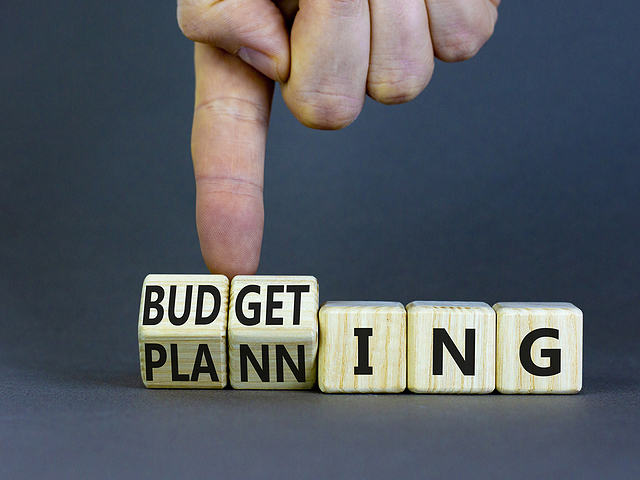
Having a wise plan for spending and saving your cash will help you attain your goals today and in the future. There are many firsts when it comes to going to college. This is often the first time many young adults leave the nest.
Learning how to manage your finances, your transportation, your accommodation, your work-life balance, your study schedule and your social life, your groceries, etc. are just a few of the items that will become priorities. Stay on track of your spending by learning the value of how to budget early on.
Your Budget Defined
For many people, the term "budget" has a negative connotation. It brings to mind an inflexible and strict monetary policy that never allows space for anything fun and exciting. However, it is time to remove this definition from your brain.
True budgeting accounts for planning your expenses in a manner that earmarks cash for the things you care about. It allows you to spend less on items you don't like spending money on by being smart and taking long and short-term goals into account.
By saving a bit for a rainy day every payday, you won't feel completely blindsided if unexpected expenses arise. Car trouble, an emergency trip home, a prescription, or concert tickets shouldn't break the bank.
Are you satisfied with your current living situation? Some people scrimp and save and choose to live in a minimalistic place to have more spending money. Others split the cost of a comfier location with roommates, family, or friends.
Think about your ideal future location and what your preferences are. Do you eat out all the time? Perhaps, living within walking distance of your favorite cafes and restaurants means paying more in rent downtown. However, having access to public transportation may help you reduce your transportation fees and parking costs. Take your lifestyle into account when you are determining a budget to see where your personal priorities lie.
Being A Budget-Savvy College Student
After you have decided what your monetary priorities are, you can break down the details. Check out the following step-by-step guide and budget breakdown to help you streamline the process:
First Step: Create an expenses list including your necessities such as housing, food, gas, tuition and entertainment. Divide your list into 3 categories listing them in their order of importance.
School Expenses cover everything that you are responsible to pay that is not paid by student loans, financial aid, or your parents. Consider school fees, parking costs, medical and dental insurance, etc.
Personal Expenses include your clothing, toiletry items, subscriptions for music, streaming and TV, prescriptions, etc.
Infrequent Expenses will cover your emergency fund for a broken phone or computer, and your vehicle repairs and your plane or bus ticket home for the holidays, etc.
Second Step: Create your income source list and how much you have once taxes are removed. Record the date during the month that you expect to be paid these funds. Include details regarding when your financial aid and student loans will arrive and the method in which they will be disbursed. If you have access to a 529 Education Plan set up by your family, speak with them regarding when and how those funds will be distributed.
Third Step: Establish your Budget. Look at the funds coming in and the funds coming out and when and then figure out where each dollar will go.
Ensure You Have A Realistic Budget
Engaging in some simple strategies will help you stay on track. You may decide that eating out is too costly and you prefer to spend the money on a graduation trip or a new car. This will mean that you will have to adjust your shopping budget and your schedule to allow for cooking and cleaning. Maybe you start by eliminating half of what you spend on takeout and use a more gradual approach.
Sticking To Your Budget
You need to work with your budget and stick with it to make this work. This requires checking in daily, weekly and monthly. You can set reminders on your phone or your calendar to help.
Automate & Prioritize Savings As Though It Is A Bill
Don't forget to pay yourself each month too. Once you treat your savings as an automatic bill payment, it will add up quickly. It is essential to incorporate savings into your monthly bills to help establish an emergency fund. This is helpful if you are anticipating a large purchase like a major appliance or a vehicle or if you are saving for a down payment on a house.
If you don't factor savings into your monthly budget, unexpected costs can instantly lead to debt and frustration. Simply automate a transfer from your chequing account into a savings account with the highest interest rate you can access. Speak with your bank to determine the best way to go.
Be Flexible and Adaptable
College is a unique time in your life to learn about yourself and to change and grow. Normally, your priorities will shift as your finances, schedule, studies and friendships change. Check-in with yourself and your bank account often.
Determine some short and long-term savings and spending goals. You will be able to see which things are holding you back. Placing your expenses in order of importance can help you make the best decision regarding which items you want to continue paying for and which items may be better spent elsewhere.
Automating Your Spending
Use online automatic payments for your recurring and fixed bills including insurance, rent, internet, water, electricity, cell phone bills, etc. You won't have as much temptation when you find that the money doesn't last long in your bank account before it is delegated elsewhere.











